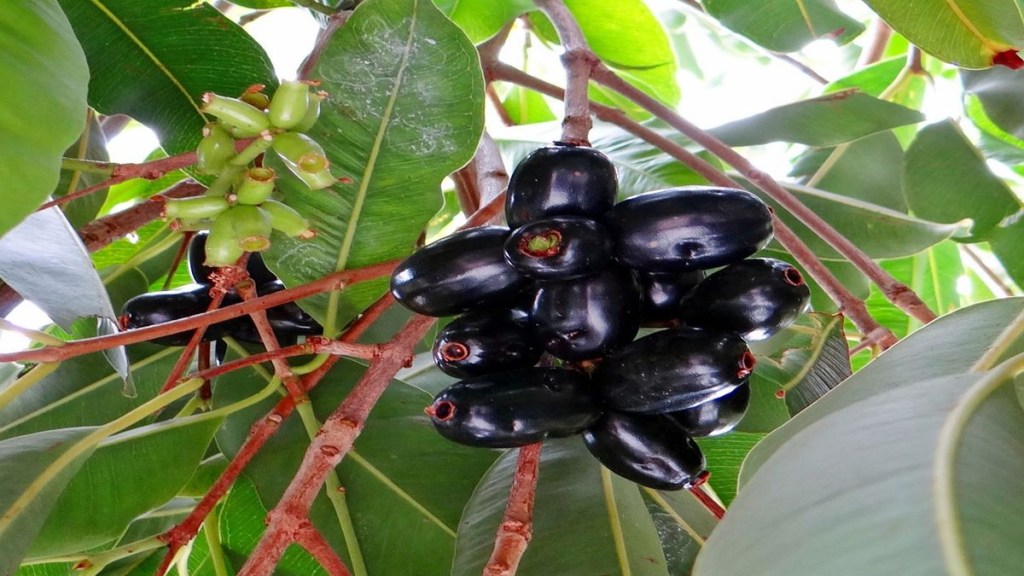Jamun, also known as Java Plum, is seasonal fruit available across India during summer. The fruit is extremely delicious and has a sweet-tangy taste. Studies suggest that Jamun has several medicinal and health benefits. The superfood can be consumed in other forms such as juice, vinegar, tablets, capsule and churna, all of which have a variety of medicinal properties.
Jamun consists of water, protein, lipids (fat), calcium, iron, magnesium, phosphorus, potassium, sodium, vitamin C, thiamin, riboflavin, niacin, vitamin B-6, vitamin A etc.
What are the benefits of eating Jamun?
- The Java plum contains a high level of potassium content which can help in preventing stroke and high blood pressure.
- Jamun is rich in antioxidants, which work against free radical cells that often trigger the growth of cancerous cells.
- The Java plum fruit contains nutrients and vitamins that help to boost your body’s immunity.
- Studies suggest that eating Jamun can help in the formation of collagen in the skin.
- Consuming can also provide you a lot of relief if you suffer from headaches frequently.
- Jamun contains zinc and vitamin C that may help to prevent coughs and other respiratory complications.
- The Java plum is beneficial to the teeth and gums.
When is the right to eat Jamun?
Jamun is extremely healthy and it can be eaten any time of the day. However, you should avoid eating Jamun on an empty stomach. The preferable time to eat jamun is after meals as it helps in digestion.
What are the side effects of consuming Jamun excessively?
- Consuming Jamun in excess may lead to low blood pressure.
- Although eating Jamun helps in digestion, going overboard may cause constipation.







